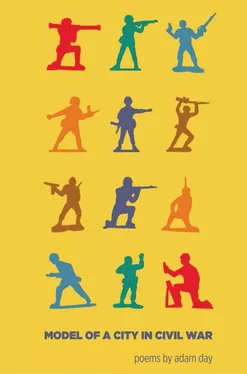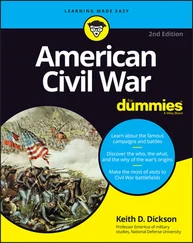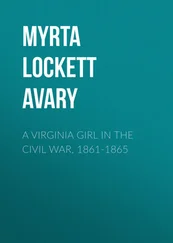Hands clapped flat between
knees I slept as the old man
shuffled through the French doors
and grabbed my shoulder—
rolling over, he slipped his hand
into mine — skin like black cabbage,
the skin of one badly burnt.
He leaned close — eyes green marbles
under ice, and I could see beside
the long darkness of his ear’s tunnel,
a blue sore like a decomposing berry,
and he said that he wanted Houdini
in the Hippodrome with Jennie
the elephant, and his black stack
of scratchy Red Seal albums
for the crank Victrola, and the dunes
and cut & pressed glass ruins
of a coastal town. I let him into bed,
and we listened a long time
to the furnace — I sang Caruso
into his good ear, until he began nodding
and I escaped from my skin leaving it
beside an old, deaf, nearly-blind man,
a palsied pile of nylons, a world of snow.
My father was inconsiderate enough
to die. A barrister, he loved
his wig. The criminals liked it too. No one wants
to be sent to prison by someone wearing
a t-shirt. They cut his carotid in autopsy
and asked if we had a scarf he might wear
for the funeral. So he lies in state
like Liberace. The rings won’t fit
the swollen fingers. On his sixtieth
he planted his face in the cake. When
the undertaker isn’t around I run him through
the range of motions — the pulleys
and cranes of his knees still creak. I’ve never
seen god in the face of a sleeping girl
or anywhere else. The old lovely bastard.
I’m not wary of myself, or others,
but myself in the presence
of others. It might be safest
to stay home and read. Saturn’s rings
become the cast-iron balcony
of a house seen from everywhere,
on which inhabitants of the planet
take the air in the evening.
None of us is more alone
than another, and still no comfort
in it. I have never clutched anything…
at dusk deliriously. Sunlight
on stones is nothing like laughter
and still there is nearly enough.
After Ingmar Bergman’s The Passion of Anna
The snag of meeting new people
is that you’re asked to care about them—
nightmares, affairs, surgeries. Outside,
twenty-five sheepbells like wind chimes.
Nail bucket won’t stay on the roof. Boys hung
a small dog from a low branch — it’s cries covered
by gulls. Got the noose knot right. Took him
down live. That night I’m invited to dinner; tie
and black jacket. Swedish gin, discreet charm. Two
women with overbites god-talking, and a job
in a turtleneck. Shadowed interiors before snow-lit
casements. Leave a door ajar and there are
questions. Miss a fellow’s funeral, the bones’ll
never know. Frost-eaten pinecones. Muck-boots
in the green wetwhite goose shit, passing a butchers’
rack: lamb flanks, hog’s heads, a small shack humid
with horse piss and fish. If a rocks glass is thick
enough it makes a good sound when it breaks.
THE KINGHORSE BUTCHERTOWN BRAWL
Fifteen and scared, stabbing
a thick-necked skinhead
in Solovairs and a mule coat—
the quick resistance and crack,
sound like a hoof on gravel. He davened
back on his heels. The dumb, bird-shot
shock of his mouth
and the boggy slot, petering out
a bloody puddle. I rolled my tongue
around in my mouth a second,
then split. After twenty blocks
of cold I stopped
to wipe my hands and felt bad
but not sorry yet.
They took him
in their car
to the 4400 block
of ____ Avenue,
near the airport,
where they left him
behind a utility
shed. The older
one driving. They
put a plastic bag
over his head
before they shot him
above the left ear. He
must have thought
they were going
to suffocate him.
Walking through ice-seamed streets
to a theater, a streetcar full of talking
bodies passed a woman, before a column
of tanks rolling towards the town square
to confront a revolt. The woman
waved at the soldiers, and at that moment
she was tempted for the first time to join
them. It was not that the woman, with her
small breakable nose, tolerated the cruelty
of such a struggle in the hope
that it would bring a prosperous future:
the harshness of the violence was simply
endorsed as a sign of authenticity, three
or four times bigger than an opera.
The signal was a girl’s raised
gloved hand to her red hair. So, it spread
along the rye fields, through the alfalfa
and dusty roads, to our homes, like birds
barking in the hollows of the hills. We were
rebels; or when generals were killed,
the generals. Sometimes the military
were better rebels. We were the products
of our own ideas: being rough
is a game. Unseen loudspeakers drowned
protest in canned laughter and waltzes. Men
patched wounded women; like pregnancy
it was an unfair competition. Captured
or capturing, condemnation followed
upon execution. What’s lovely about war
is its devotion to thoroughness
and order. It keeps count. At the end
we got down and tasted the forest floor,
holding the place where someone
was before, stood in dead shoes,
understanding the mathematics of it, the finite
sets of odd cardinality, below the pirated
nest of a titmouse and eight pink-white eggs.
DIORAMA — (SCARLET AND LIVER)
There is Mussolini in his tight,
rough-wood coffin,
shirtless on pine shavings. One eye opened. Swollen face
pancaked, his mouth a singed, lipless stretch.
“Despisal of the bourgeois is the beginning of virtue…,” wrote Flaubert.
and wondered why we laugh
at affliction.
Maybe it’s because that thing
that sits with us at breakfast—
that eland — and looks back at us
from the bathroom mirror, and sleeps
even in our coat pockets,
that thing intimate and unfamiliar, a someone
unknown
who we will enter or be entered by, is ,
finally.
The miniature American flag waves
from the blue, snow-stranded Bronco’s antenna.
The fascists were hung by their feet — like the crooks and embezzlers
of medieval times—
from the girders of an Esso gas station
in the Piazzale Loreto . A far cry from the Mussolini
who sat in a chair at cocktail parties
holding his thumb out
for women to bite down hard on.
Closer to Goya’s Suerte de Varas
whose arena is littered with gored horses,
and a picador frozen amid a frenzied crowd
who stare at the bull,
its wounded shoulder a bloodburst,
balancing against stupor.
Out of decency
before the crowd in the Piazzale abused the bodies,
Clara Petacci’s skirt was tied tightly around her knees.
My great grandmother’s death
was communicated to me by phone
through an impatient orderly—“Mrs. has expired”—
as if
she were a side of beef
or an embrace between lovers in an English gazebo.
Flaubert also said: “The most beautiful woman isn’t
beautiful at all
on the dissecting table, with her bowels
on her face,
one leg flayed, and an extinct cigar
reposing
on her foot.”
Читать дальше












